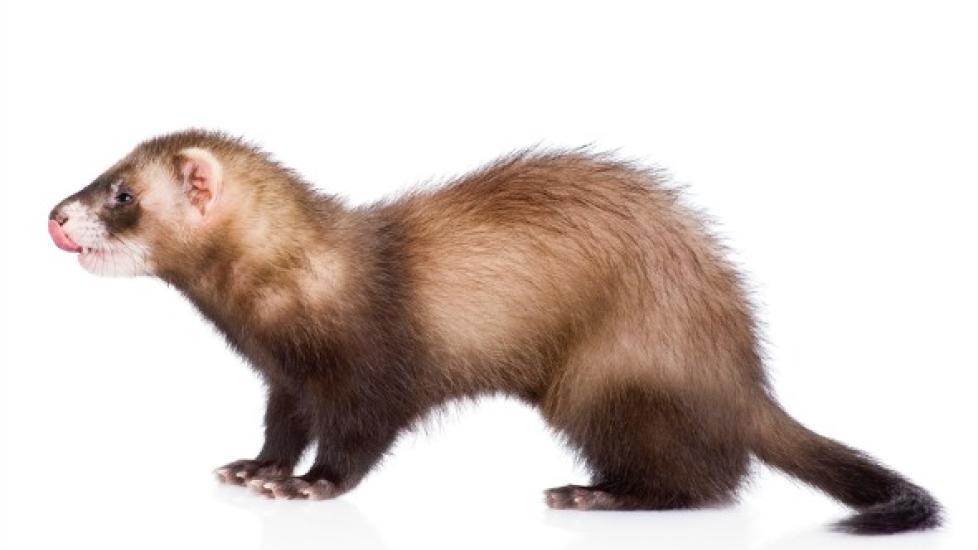Hair Loss in Ferrets
Alopecia
Alopecia is the complete or partial loss of hair in areas where it is normally present. This is a common disorder in ferrets and, depending on the underlying cause, it can be treated. Middle-aged ferrets (between the ages of three and seven), or ferrets which are neutered (males) or spayed (females) are most prone to hair loss.
Symptoms and Types
The primary sign of alopecia is unusual hair loss. Symptoms may progress suddenly or slowly. But the exact pattern and degree of hair loss may help determine the cause of alopecia and identify the condition as primary (happened on its own) or secondary (occurred due to another illness).
For example, large and diffuse areas of hair loss are common signs of alopecia resulting from metabolic conditions or a genetic condition known as follicular dysplasia. Conversely, patchy sections of hair loss typically result from bacterial or parasitic infections, and may occur suddenly or progress slowly over time.
Causes
The most most common cause for ferret alopecia is adrenal disease, a disorder affecting the adrenal glands. Other causes for alopecia include:
- Immune disorders
- Allergic reactions
- Bacterial infections
- Parasitic infections (e.g., fleas, ear mites)
- Nutritional problems (i.e., protein, fat or other essential nutrient deficiencies)
Diagnosis
To diagnose the ferret with alopecia, your veterinarian will first want to rule out other causes for the ferret’s hair loss such as skin cancer and hormone imbalance. Then, depending on the underlying cause, your veterinarian will conduct a series of examinations to confirm the diagnosis. This may include blood and chemistry analysis to test for anemia, infection or hormone and steroid imbalance.
Treatment
Treatment is dependent on the underlying cause of the hair loss. For example, tumors are excised in the case of cancer, and adrenal glands are surgically removed in the case of adrenal disease. Parasites, on the other hand, are removed using creams or other topical agents. Consult your veterinarian for the best course of treatment in your ferret's case.
Living and Management
Bring the ferret to the veterinarian for regular follow-up appointments so that they may monitor the animal's condition and the progress of the treatment.
Prevention
As there are numerous causes for alopecia, no specific prevention method can be recommended. However, a healthy lifestyle, well-balanced diet with sufficient protein, and general cleanliness of the ferret's habitat may be helpful in avoiding needless hair loss.
